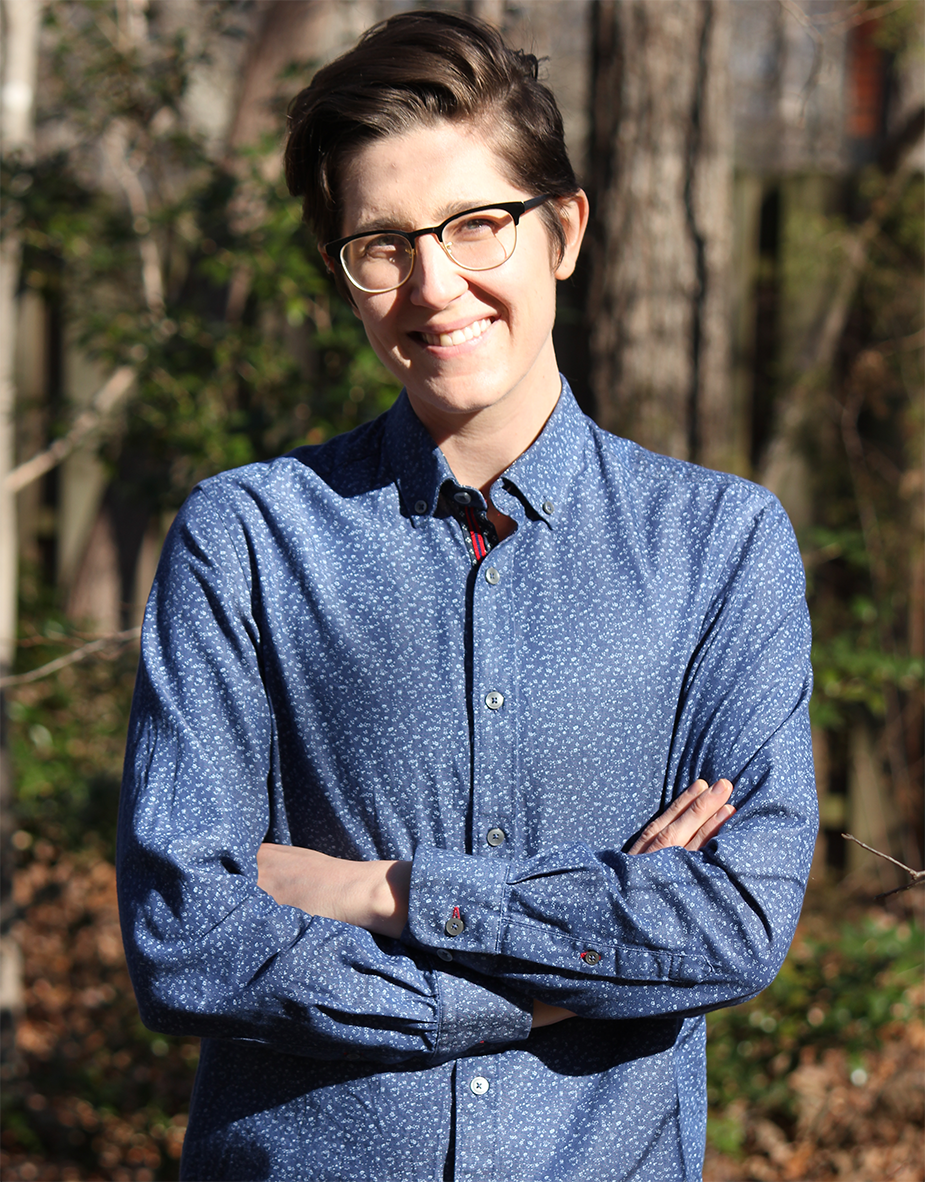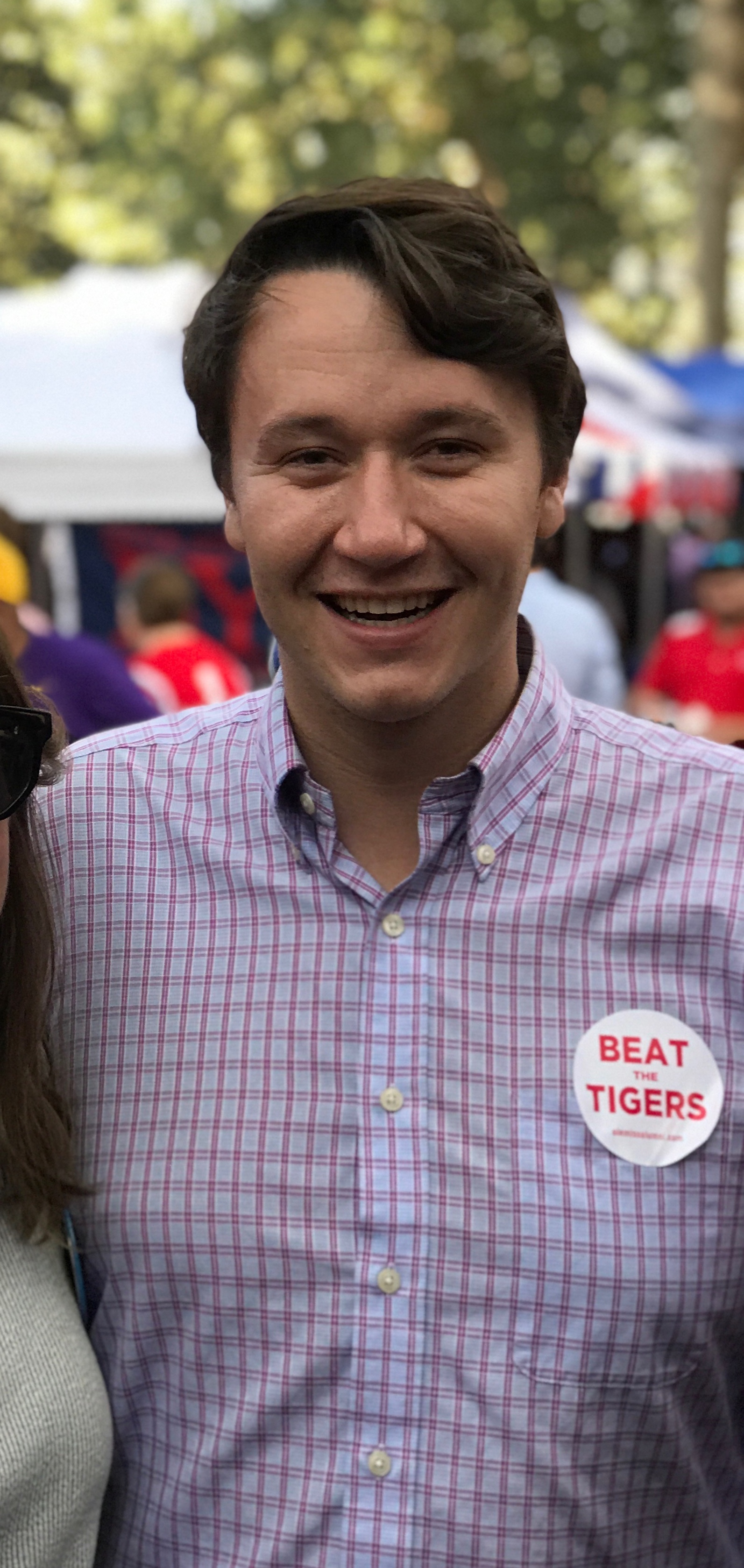Isom GA's reflect on upcoming visit by Mandy Carter to UM
Sarah Heying
Hooper Schultz
Mandy Carter’s talk, “Advancing Each Other: Building Coalitions Across Communities,” is sponsored by the University of Mississippi School of Journalism and New Media, the Sarah Isom Center for Women and Gender Studies, and the Center for Inclusion and Cross Cultural Engagement, and Center for the Study of Southern Culture as part of their SouthTalks series.
She will be joined on stage by UM students Kendrick Wallace and JoAnndria Brown, as well as our own Isom Center graduate assistants, Sarah Heying and Hooper Shultz. Sarah Heying is a graduate instructor of gender studies. She is a Ph.D. student in English literature at UM, where she researches lesbian and trans aesthetics in periodicals, comics, and genre fiction. Hooper Schultz is an MFA student whose research focuses on the Queer South, and the history of LGBTQ activism in North Carolina. He is currently a field worker for the Invisible Histories Project.
We sat down with Hooper and Sarah to chat about the significance of next week’s upcoming event.
When did you first learn about Mandy Carter’s work?
Hooper: I first heard of Carter when learning about SONG after seeing one of their activist/performance/actions in Charleston, South Carolina. I was 23 or 24 at the time. So it’s a wild that as someone who grew up about 20 miles from where Carter has been doing all of this work for so long, that I was not taught about her in school. I signed up for SONG's mailing list then and remain on their comms team text thread.
Sarah: I can't say for sure the first time I learned about Mandy Carter and her work, but it likely happened while I was an undergrad at UNC-Chapel Hill and became involved in LGBTQ+ activism. She was a founder of SONG (Southerner's on New Ground), an LGBTQ+ organization based in the Triangle area of North Carolina. But it's really not until recently that I've begun to truly grasp the importance of the work that has been happening in the Triangle for a very long time. Sometimes it takes leaving to fully appreciate what you had!
What does it meant to you and for your work as an academic to be on a panel someone like Mandy Carter?
Hooper: I am honored to be sharing space with Carter. She is the real deal. The work that she has done and continues to do has made space for me as a younger queer North Carolinian. I really owe a lot to her and the other SONG activists, not only her SONG work but also her anti-racist work, her political activism, all of it.
Sarah: Part of my dissertation looks at a feminist periodical that was produced by Feminary, a Durham-based feminist collective that was active from 1969-1982. One of the most well-known members of the collective, Mab Segrest, was also a founding member of SONG alongside Mandy Carter. I'm really excited about this opportunity to ask Carter about her perspective on the LGBTQ+, anti-racist, workers' rights, and other human rights organizing that was happening in that area in the eighties when she arrived, as well as how she sees that legacy continuing into current organizing.
Mandy Carter is an activist, so could you talk about the intersects between academia and activism?
Hooper: Hmm. That's a hard question. I think that academe inherently blunts activism, unfortunately. I don't think it's an all-or-nothing situation, but I think academics need to be honest about their ties to the institution. We should be more self-reflective about that. I do believe that my work functions as activism, helping to illuminate the histories of LGBTQ+ people in the South, but I have no illusions concerning how the choices I make are influenced by the University of Mississippi, administrative bureaucrats, and ultimately the state government. They're paying my bills. So, I guess it's less of an intersection and more of an acknowledgement of my own limitations, of where I've decided to make ideological concessions.
Sarah: A big component of women's and gender studies is putting theory to work in order to change the systems of oppression that we critique. For a literary scholar like me, that means thinking critically about whose voices I'm amplifying in the literature I research and teach, as well as how the process of writing and the production of texts can be considered forms of activism in themselves. It's about thinking of books as more than discreet objects. But by and large, I don't think of academia as an activist-friendly sphere. Interdisciplinary departments like Gender Studies, African American Studies, and Southern Studies tend to be most welcoming of this intersection between academia and activism, and I imagine it has something to do with the way interdisciplinary thinking works to break down barriers between departments and well as between the academy and the community.
Why do you think these conversations are important for our campus community?
Hooper: I think that when we talk about capital-D "Diversity" on campus, too often we silo individual identities out. I think that Mandy Carter has worked against this her whole life. Her activism has been the opposite of one-dimensional. She is simultaneously Black, Queer, a Woman, a Southerner, an Anti-War activist, labor activist, all of these things. Not in succession. At Once. And that's a beautiful and powerful and ultimately hard thing to do. So when students and all our community members can see that in action, I think that it's a learning opportunity. She's a role model.
Sarah: The fact of the matter is that the University of Mississippi is an academic community deeply rooted in racism and homophobia, and if we're ever going to take legitimate and extensive measures to reroute this legacy, we need to learn from the people who have devoted their lives to doing the hard work to make change. Mandy Carter has a specifically southern activist perspective, so I think we should listen closely.
The panel discussion will be at the Overby Center Thursday, Feb. 13, at 11 a.m.
About Mandy Carter:
Carter is co-founder of Southerners On New Ground, or SONG, a human rights organization devoted to uniting LGBTQ+ people in the South and assisting the poor, rural and working class, immigrants and people of color, to become leaders in shaping the region’s future.


